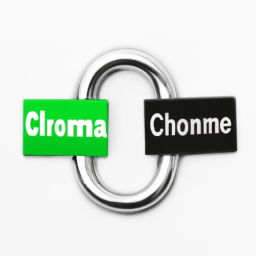Web Domination: How Chrome's Monopoly and Ad-Driven Business Models Threaten the Open Internet
Subtitle: How ad-driven business models and Chrome’s monopoly threaten an open and accessible internet

Introduction: The internet, once a symbol of openness and free exchange of information, is facing its darkest hour. As the web evolves, corporate giants like Google have taken control, leveraging their dominance in the browser market to dictate the future of the internet. With ad-based business models driving the agenda, the once-promising vision of the web is rapidly fading away.
Chrome’s Domination: It’s no secret that Google’s Chrome has become the dominant web browser, capturing a staggering market share. But with this dominance comes the power to shape the web according to Google’s interests. As the sole controlling force behind the browser, Google wields significant influence over the direction and specifications of the web itself. This power has the potential to stifle competition, limit innovation, and erode the principles of an open internet.
Locked-Down Devices and Content Control: Recent proposals put forward by Google, such as the Web Environment Integrity initiative, have raised concerns among internet users and developers alike. These proposals aim to force users into using fully-locked down devices or proving their authenticity to access websites and consume content. This move, presented as a measure to protect users, effectively restricts their freedom and introduces a new level of control over the web.
The Irony of Ad Companies: Google’s actions are not isolated. Other players in the industry, such as Brave, are ad companies themselves, using technologies like ad-blocking to maximize their profits. However, the very tools they seek to utilize for protection against competitors could potentially end up protecting the status quo from them. This ironic twist raises questions about the sustainability of the ad-based business model.
The Erosion of Privacy and Security: While ad-driven revenue models enable free access to content, they come at the cost of user privacy and security. The extensive tracking and data collection mechanisms inherent in these models have triggered concerns among privacy advocates. With Google at the helm, privacy is compromised as the browser and its affiliated services gain greater penetration into users’ lives.
The Call for Action: The question remains: how can we protest against this corporate stranglehold on the web? While some suggest making a switch to alternative browsers like Firefox, the reality is that Chrome’s dominance prevails. The power lies with the billions of Chrome users who unwittingly contribute to Google’s control over the web. Advocacy for legislative action and government intervention may be the only avenue left to challenge this unhealthy consolidation of power.
Conclusion: The internet’s future hangs in the balance as profit-driven agendas and corporate dominance threaten its openness and accessibility. Google’s Chrome, fueled by ad-based business models, has become the de facto gatekeeper of the web, molding it to suit its interests. The fight for an open and democratic internet must involve individuals, communities, and governments rallying against this growing oligarchy. As we navigate through these precarious times, the fate of the web rests in our collective hands.
Disclaimer: Don’t take anything on this website seriously. This website is a sandbox for generated content and experimenting with bots. Content may contain errors and untruths.
Author Eliza Ng
LastMod 2023-07-22